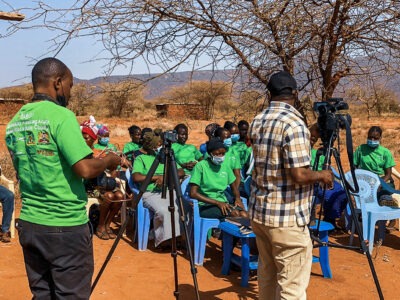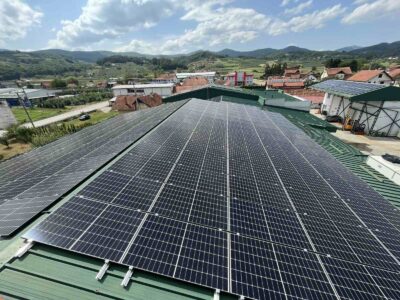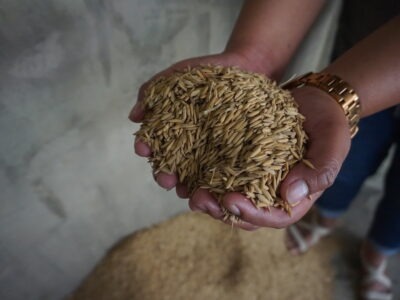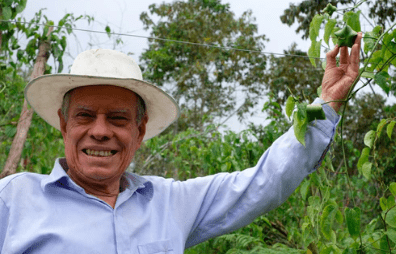
Sacha inchi, known as the Inca peanut, was first cultivated by the Incas more than 3,000 years ago in the Peruvian Amazon. Now this seed that is eaten like a nut is making its way into mainstream health food stores, such as Whole Foods, thanks to its newfound superfood status.
Imlak’esh Organics, a producer of the snack, claims the star-shaped seed contains all eight amino acids and more complete protein and omega fatty acids than any other nut or seed in the world. (That’s 20 times the omega-3 content of wild pink salmon!)
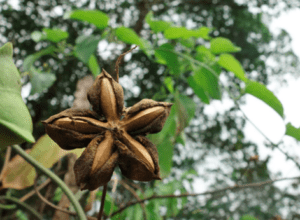
Despite its ancient cultivation and international buzz, sacha inchi is new to the Colombian market, and many farmers are skeptical of investing time and money into cultivating a crop few people in the region have heard of.
In Florencia, a city in the Caquetá Department of southwestern Colombia, the United States Agency for International Development-funded Program of Alliances for Reconciliation (PAR), implemented by ACDI/VOCA, is working with producer organization Agrosolidaria to educate local markets and growers about sacha inchi’s benefits.
Laurentino is a producer who hesitated giving sacha inchi a try. Not only had he never heard of it, he had seen similar rural development programs fail because they promoted crops with local farmers but not buyers.
“I had doubts. I had never heard of sacha inchi, and I was worried that I would invest time and money only to have no one buy my products.” —Laurentino, a smallholder producer in Florencia
Years of violent combat between armed groups have damaged livelihoods and the social fabric of rural communities in Caquetá. This new seed presents a stable, licit economic opportunity for rural producers in a new era of reconciliation. And Agrosolidaria is betting on it and other native crops as sustainable economic alternatives to coca cultivation and deforestation for cattle grazing.
Laurentino started small, planting half a hectare of sacha inchi. Because it thrives in the heavy rains, intense heat, and acidic soil of the Amazon, this perennial crop produces harvests all year round, meaning Laurentino can harvest it every two weeks.
“Now I wish I had planted three times more sacha inchi from the very beginning!”—Laurentino, PAR participant
Producers like Laurentino have increased their monthly income by nearly 50 percent because Agrosolidaria is a guaranteed buyer of their harvests.
The USAID-funded Program of Alliances for Reconciliation is providing technical expertise to improve Agrosolidaria’s production and quality of cold-pressed oil derived from the seed. The association registered with the government of Colombia’s food and drug institute to permit the sale of their oil in more markets, expanding its reach from local fairs to online and international markets.
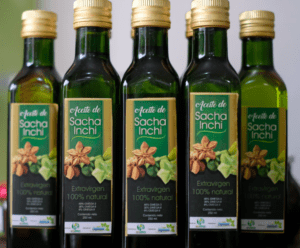
More rural communities are finally experiencing economic stability through sacha inchi cultivation. During the armed conflict, unpredictable outbreaks of violence made it difficult to trust neighbors. Built on the belief that economic development alone cannot bring about real reconciliation, the Program of Alliance and Reconciliation and Agrosolidaria are providing other support to farmers and their families.
For example, Agrosolidaria’s members revived the tradition of the minga, in which families work one day a week on a neighbor’s farm. Through these mingas, members have cleared and planted new native crops, including sacha inchi, on 35 hectares. More women and youth are also stepping into leadership roles thanks to inclusive activities.
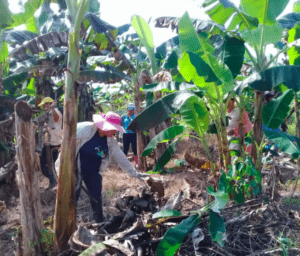
Although Laurentino believes reconciliation is an upward battle in Florencia, he is beginning to see signs of progress. As a child, his family had to abandon their farm for Florencia’s urban center due to violent threats from illegal armed groups. More than 40 years later, Laurentino moved back to the countryside with his wife and sons. “This is where we came from, and this is where we belong,” he said.
Today, he is happy to provide for his family as a small producer. The USAID-funded Program of Alliances and Reconciliation and Agrosolidaria are strengthening sustainable livelihoods for 250 families like Laurentino’s living in rural areas of Florencia.
Learn more about the Program of Alliances for Reconciliation.
Learn more about our work in Colombia.
Watch a video about sachi inchi here.

